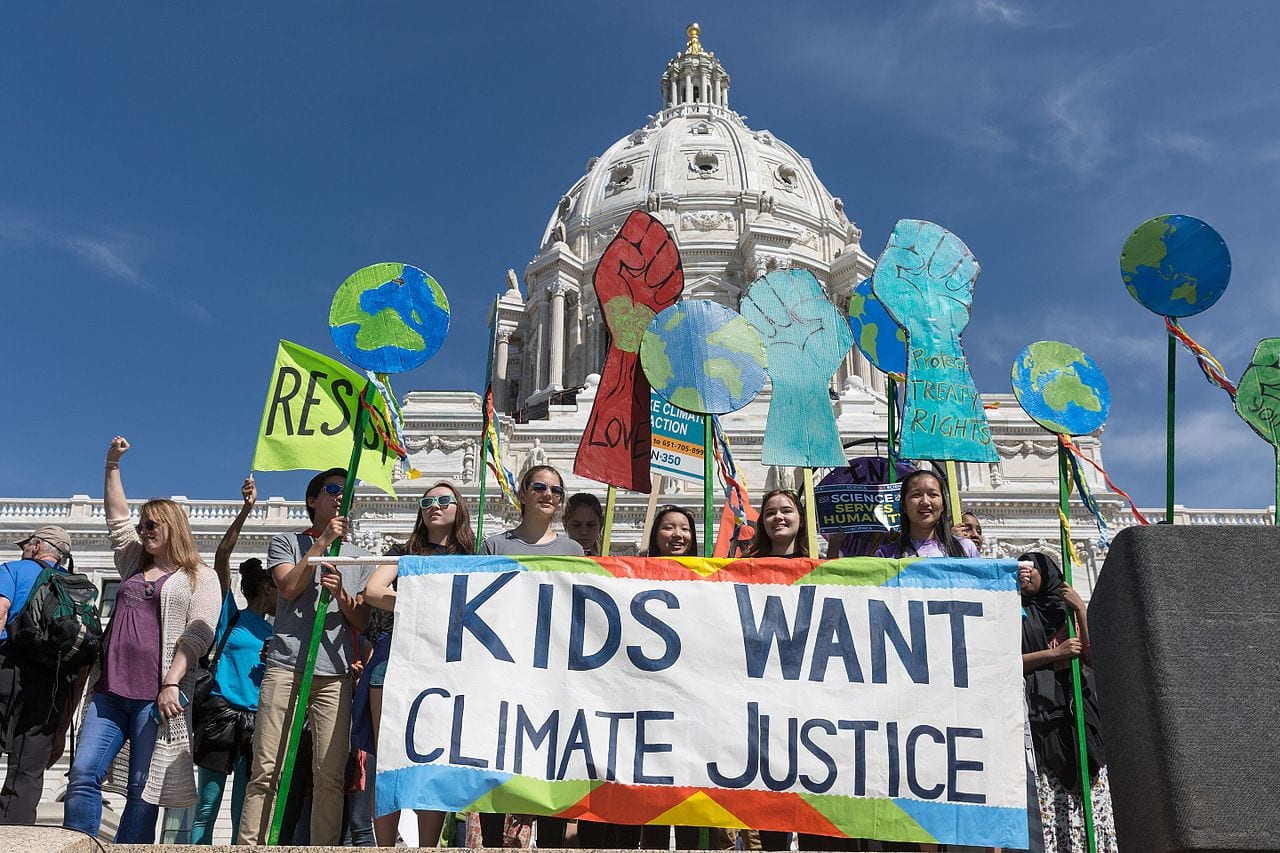Despite spending less time outside than prisoners and facing a bleak future, recent protests make it clear that the kids are all right.
Football is a kids’ game, but kids themselves are political footballs in the culture war, now as much as ever. Everyone thinks they know what’s good for children, and that everyone else’s recommendations are misguided at best. When resources decline and adults fight among themselves, the needs of younger people easily fall by the wayside. Still, no matter how badly we bungle the lives of the littles, whether geopolitical posturing results in their needless deaths or we simply don’t sing to them enough, today’s younger generations are showing a surprising level of resilience. Maybe the kids are all right, despite us.
The hardships of a changing world practically demand that children grow up too soon. In the last century, the level of education needed to navigate daily life and career demands has risen dramatically. It’s tempting to steer young people into academics early, but if we listen to teachers, the kids are all right, they simply need time to be kids. Unfortunately, recess, music, and gym are usually cut first when an impoverished tax base can no longer support quality schools. We need to rethink education, and happily, some schools and communities already are. One of the more innovative models is the “forest school,” where the entire day is spent in nature. Treating kids as individuals instead of cogs might seem as impractical as teaching them to forage acorns, but in the world we’re headed towards, that might be a more useful skill than finance.
The loss of recess is part of a larger pattern. The allure of screen time combined with the fear of crime, cars, and “stranger danger” is keeping kids indoors after school, too. A recent survey by a Unilever subsidiary found that 74% of children in the UK spend less than an hour a day playing outside, less time than allotted to prison inmates. In the U.S., it’s estimated that children have logged about 5000 hours of screen time by their first day of kindergarten. Kids who are driven around instead of exploring on foot or bicycle are less able to draw an accurate map of their neighborhood, and probably don’t know as many of their neighbors or other important details about their surroundings, either.
There are more threats to childrens’ health than just being cooped up indoors. There’s legitimate concern over the harm done to children by Flint’s lead-poisoned water and similar (but less famous) water crises around the country, but it’s also sobering to realize that 20% of kids don’t drink water at all. A years-long study of students who live in Los Angeles neighborhoods found that as clean air regulations resulted in less particulate matter floating around, fewer children developed asthma. If you think we should look into this, though, you’d be disagreeing with the EPA, which, in a move that benefits polluters, is cutting back on research into children’s health. Apparently not all lives sufficiently matter.
With so many societal factors working against our children, what kind of citizens will we have in a couple decades, and in what direction will they lead us?
As it turns out, despite our “best” efforts, the kids are all right.
Even as the adults in the room dither while the world burns, the kids are showing up to make the better world we didn’t build for them. In California, for example, fewer young people are arrested than in previous decades. According to one report, “In the 1970s, 10 percent of youthful Californians were arrested every year; in the 1990s, 7 percent; today, 2 percent.” We’re not just talking about “good” neighborhoods either.

Today’s kids are also growing a social conscience. At a county fair in Norristown, PA, this month, police were called to the scene of what may have been a fight. After an officer punched and started choking a teenage girl, a scene that has too often been fatal for young people of color, a mass of teenagers swarmed the officers and pulled them off of her. In Lakeland, Florida, an 11-year-old boy was arrested by police for refusing to stand for the Pledge of Allegiance. Disrespect for the police and the symbols of patriotism (and empire) may seem shocking until you consider it from the kids’ point of view.
Perhaps the clearest sign that the kids are all right is manifesting as the worldwide climate strikes led by the unlikely voice of Greta Thunberg. The kids are demanding a world worth living in: actions that will head off the worst of the climate disaster that the last several generations have dropped on their shoulders. Climate even brought together Palestinian and Israeli youths at a march in Jerusalem, putting aside their political divisions to address the larger existential threat. Today’s youthful climate protesters have a moral clarity reminiscent of the Baby Boomers’ anti-war protests in the Vietnam era, and perhaps one day even Greta Thunberg will be as co-opted by greenwashers just as so many Boomers eventually joined the Tea Party, but until then, we can hope. If the kids ever figure out the “how” that backs up their vision of “must,” we’ll all be all right.
Related: School Lunches: What Should Kids Eat?


Join the conversation!